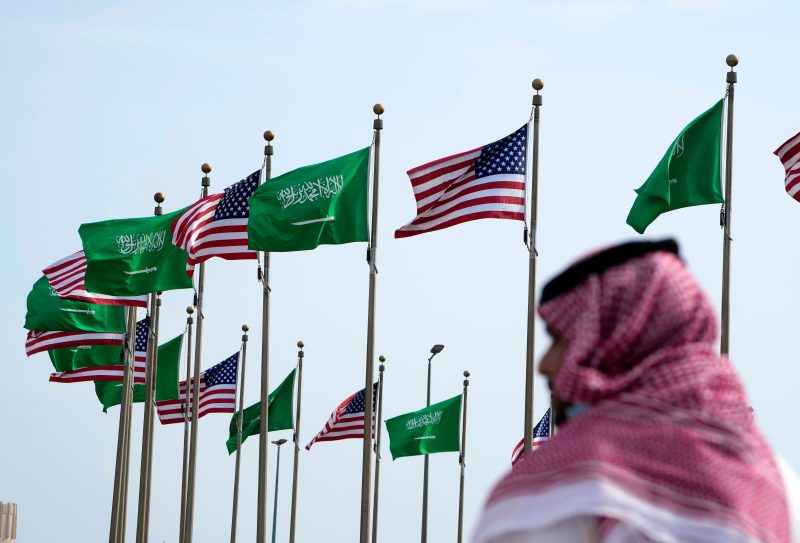**New Chapter in U.S.-Saudi Arabia Relations**
The decision to restart offensive weapons sales to Saudi Arabia marks a critical development in the longstanding alliance between the two nations. This move signifies a shift in the U.S. approach to arms sales in the region and has sparked both controversies and discussions among policymakers and analysts worldwide.
**Navigating Complex Geopolitical Landscapes**
In the volatile geopolitical landscape of the Middle East, every strategic move is closely scrutinized. The decision to resume arms sales to Saudi Arabia comes amid escalating tensions in the region, particularly with regards to Iran’s growing influence and activities in the Gulf. By supplying offensive weapons to Saudi Arabia, the U.S. is not only bolstering the kingdom’s defense capabilities but also sending a strong signal to Iran and other regional adversaries.
This move has been met with mixed reactions. Critics argue that selling advanced weapons to Saudi Arabia could fuel regional conflicts and exacerbate the humanitarian crisis in Yemen, where the Saudi-led coalition has been involved in a prolonged military campaign against Houthi rebels. On the other hand, proponents of the decision emphasize the importance of supporting allies in the region to counter shared threats and maintain stability.
**Balancing Humanitarian Concerns and Strategic Interests**
The resumption of arms sales to Saudi Arabia raises important ethical and moral questions regarding the use of these weapons in conflicts with devastating human costs. The kingdom’s involvement in the conflict in Yemen has drawn widespread condemnation for its impact on civilian populations and the deepening humanitarian crisis in the country.
As the U.S. navigates its complex relationship with Saudi Arabia, striking a balance between strategic interests and humanitarian concerns is crucial. The Biden administration has emphasized the need for accountability and transparency in arms sales, indicating a more cautious approach compared to its predecessors. However, the decision to restart offensive weapons sales underscores the enduring strategic partnership between the U.S. and Saudi Arabia, despite underlying tensions and disagreements.
**Implications for Regional Stability**
The resumption of offensive weapons sales to Saudi Arabia carries significant implications for regional stability and security dynamics in the Middle East. By arming the kingdom with advanced military capabilities, the U.S. aims to strengthen its allies and deter potential adversaries in the region. This move could also influence the balance of power in the Gulf and shape the trajectory of ongoing conflicts in the region.
Furthermore, the decision to resume arms sales to Saudi Arabia is likely to have broader ripple effects on U.S. foreign policy and relations with other regional actors. It sends a clear message about the priorities and strategic imperatives of the Biden administration in the Middle East, signaling a continuation of certain policies while also introducing new elements and considerations into the equation.
**Looking Ahead: Challenges and Opportunities**
As the U.S. restarts offensive weapons sales to Saudi Arabia, it faces a myriad of challenges and opportunities in navigating the complexities of the Middle East. Balancing strategic interests with humanitarian concerns, managing regional tensions, and upholding accountability in arms transfers will be key priorities for policymakers moving forward.
The resumption of arms sales to Saudi Arabia marks a significant chapter in the evolving dynamics of U.S.-Middle East relations. The long-term implications of this decision remain to be seen, but one thing is certain: it will shape the strategic landscape of the region and have far-reaching consequences for peace and stability in the Middle East.
